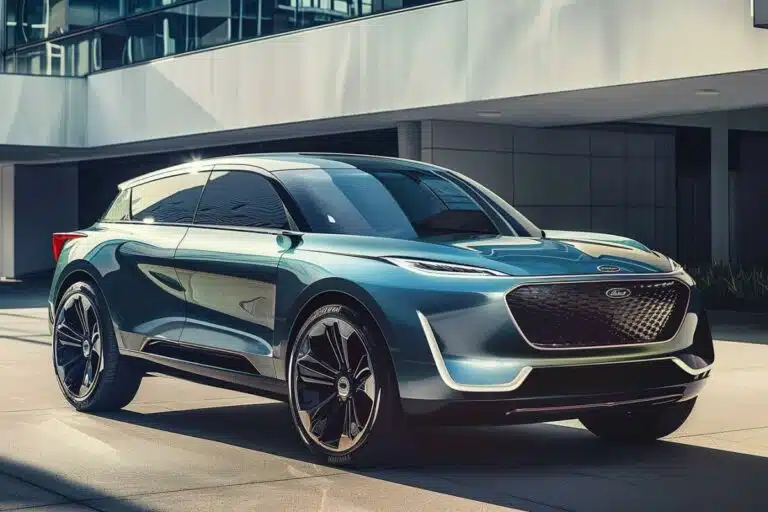Challenges and disadvantages of the Hyundai Ioniq 5

Since its launch, the Hyundai Ioniq 5 has captured the attention of electric vehicle enthusiasts thanks to its innovative design and modern technologies. However, as time has passed, various challenges and disadvantages have emerged, leading many users to question its reliability. From unexpected mechanical issues to electrical difficulties and an impact on consumer trust, the Ioniq 5 faces a series of challenges that deserve thorough analysis.
Introduction
The Hyundai Ioniq 5, an electric vehicle acclaimed for its innovative design and cutting-edge technology, has captured the attention of many automotive enthusiasts. However, as more users adopt it, a series of challenges and disadvantages have emerged that have begun to influence the overall perception of the model. Here, we will examine in detail these issues that have arisen regarding its performance and reliability.
Recurring Reliability Challenges
Frequent and Surprising Breakdowns
One of the most discussed aspects of the Hyundai Ioniq 5 is the unexpected mechanical breakdowns. Many owners have reported mechanical failures occurring much earlier than anticipated, generating a sense of discontent. A notable case is that of an ICCU failure that caused prolonged immobilization of the vehicle, dramatically affecting the driver’s experience.
Material Quality and Assembly
Additionally, several users have expressed concerns about the quality of materials used in certain components of the Ioniq 5. The interior finishes, for example, have not always met consumer expectations, raising questions about the durability and assembly of the vehicle in the long term.
Detected Electrical Problems
Computer System Malfunctions
Electric vehicles like the Ioniq 5 rely heavily on sophisticated electronic systems. Unfortunately, computer glitches have emerged that impact the driving experience, including issues with the display screen and driver assistance systems. These failures not only affect the experience but also raise safety concerns.
Battery and Range
One of the main selling points of the Hyundai Ioniq 5 was its promising range. However, many users have reported notable variations between the promised and actual range, particularly under extreme temperature conditions. These inconsistencies have led to questions regarding the effectiveness of the battery and the vehicle’s ability to meet consumer expectations.
Testimonials from Unsatisfied Users
Negative Opinions
Social media platforms and digital forums are filled with testimonials reflecting problems and disappointments related to the Ioniq 5. These accounts provide valuable insight into the daily experiences of owners, revealing a contrasting image compared to the initial promises made by the manufacturer.
Expectations versus Reality
The dissonance between high consumer expectations and real experience has generated some disenchantment. Users often highlight notable discrepancies between the manufacturer’s advertising and their practical experience, leaving a bittersweet taste for many who saw the Ioniq 5 as their ideal vehicle.
Impact on Delivery and Sales
Supply Difficulties and Delays
Frequently, the aforementioned problems have led to significant delays in the supply chain of the Hyundai Ioniq 5. The shortage of key parts, including electronics, has exacerbated this situation, hindering the flow of sales and generating frustrations among potential buyers.
Sales Fluctuation
The sales figures, which were initially promising, have begun to experience severe fluctuations due to a series of negative feedback. Consumers are becoming increasingly cautious, preferring to wait for more reliable models before making a significant investment.
Repercussions on Consumer Trust
Growing Distrust
At the core of these challenges is a notable erosion of consumer trust in the Hyundai Ioniq 5. The accumulation of technical problems and the lack of effective responses from the brand have generated increasing distrust among potential buyers.
Brand Reputation
Beyond the vehicle itself, these incidents have begun to impact Hyundai’s overall reputation. Consumers are reevaluating their perception of the brand, which influences not only the sales of the Ioniq 5 but also other models within its range. This negative impact underscores the urgent need for Hyundai to take appropriate measures to regain the trust of its clientele.
Actions and Responses from Hyundai
Implemented Corrective Measures
Aware of the criticisms, Hyundai has begun to implement corrective measures. This includes recall campaigns for certain defective parts and improvements in diagnostic systems to address issues proactively. The brand’s commitment to evolution and customer service improvement is evident.
Commitment to Continuous Improvement
The company has also shown a strong commitment to improving communication with its customers, seeking to offer more transparent solutions. Dedicated teams are working diligently to strengthen after-sales service to ensure better follow-up on user concerns. However, these actions require careful monitoring to restore consumer trust.
The Hyundai Ioniq 5 has captured the attention of many electric vehicle enthusiasts thanks to its innovative design and modern technologies. However, the initial rise has been accompanied by a series of issues that have affected the perception of the model. These difficulties have generated concern among owners and potential buyers, who expected a superior experience from a vehicle of this category.
First of all, several users have reported unexpected mechanical breakdowns, leading to frustrating experiences and a sense of dissatisfaction. Cases of failures in components such as the engine and steering wheel have called into question the reliability of the vehicle, causing many to reconsider their purchase decision. Additionally, the quality of the materials and assembly has also been subject to criticism, raising questions about the durability of the Ioniq 5 in the long term.
Another concerning aspect is the electrical issues evidenced in the Ioniq 5. With a significant dependence on advanced electronic systems, software failures have caused inconveniences, affecting not only the driving experience but also the safety of users. The variability in the promised range has generated skepticism regarding battery technology, adding a layer of distrust among consumers.
The impact of these problems has not only been limited to customer satisfaction; it has also had direct repercussions on sales and on the reputation of the Hyundai brand. The interaction of these factors has led many drivers to reconsider their faith in the brand and their willingness to invest in its future products. With all these disadvantages in sight, it is clear that the Hyundai Ioniq 5 still has a long way to go to consolidate its place in the electric vehicle market.




